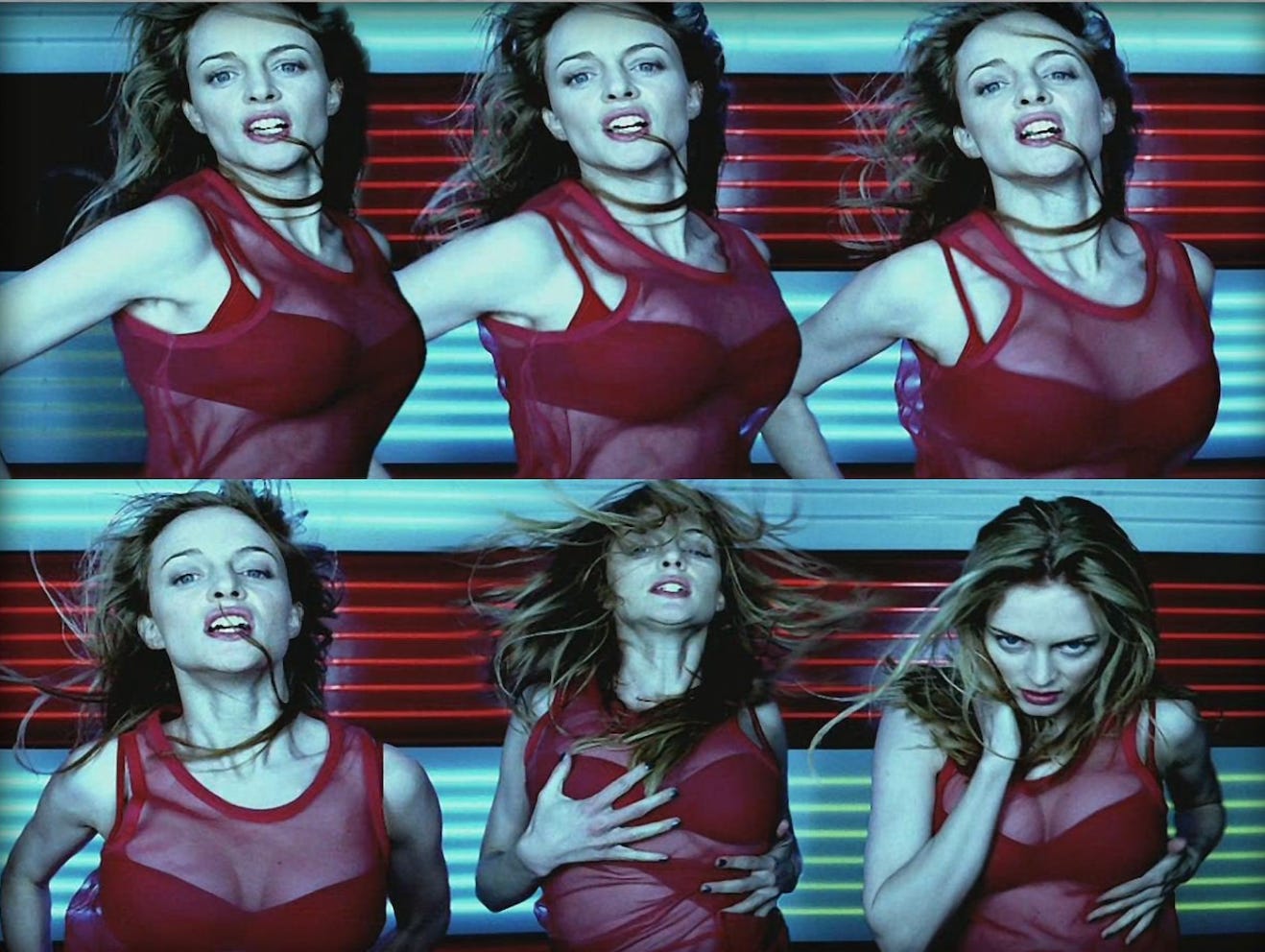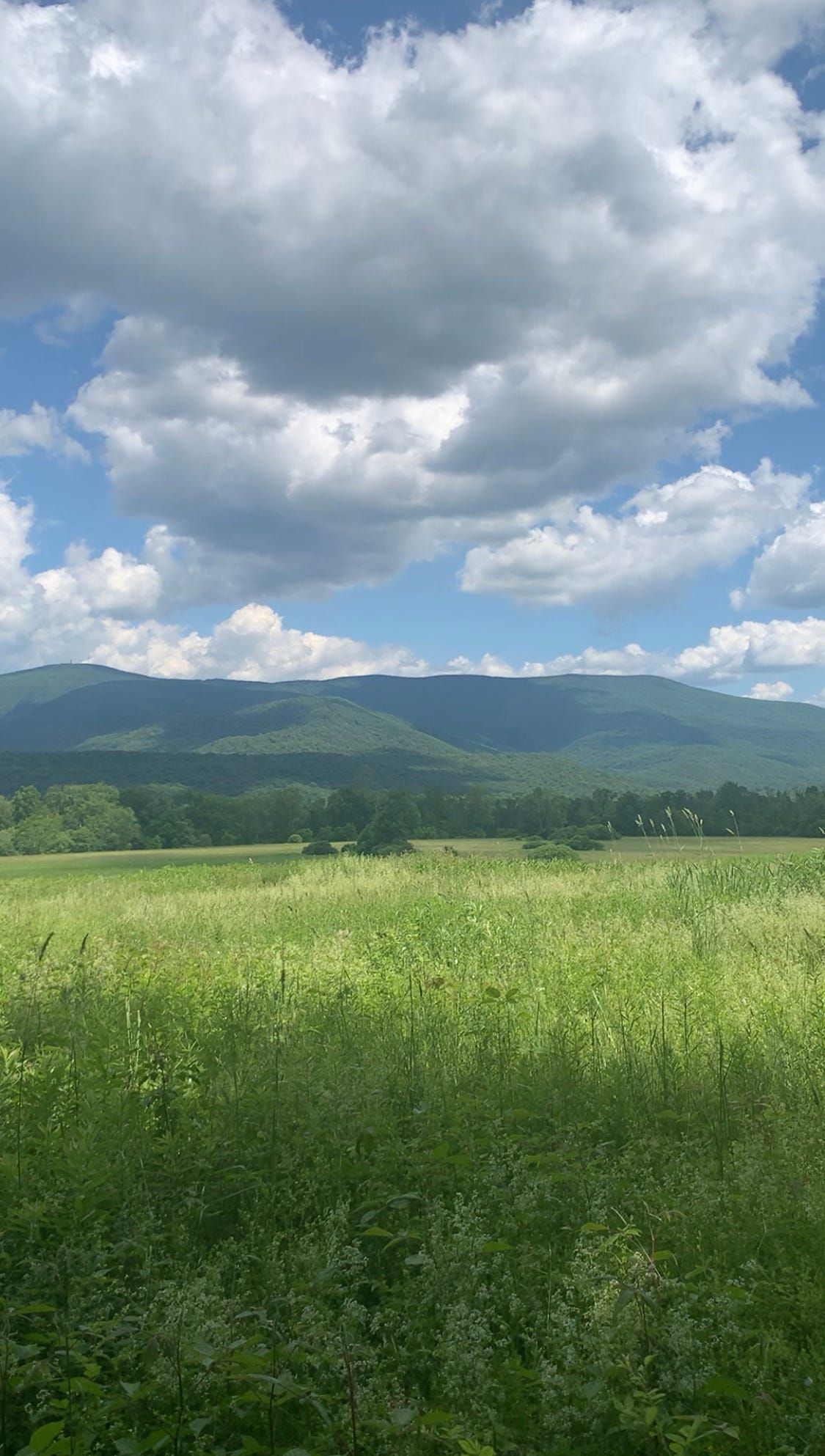I pledge allegiance to the Flag of the United States of America, and to the Republic for which it stands, one Nation under God, indivisible, with Liberty and Justice for all.
“…indivisible, with Liberty” may be the most beautiful part of that Pledge of Allegiance I remember reciting with my fellow classmates as a child, hand over heart. But all we hear about today is how polarized America is— how deep is the divide between right and left. It has become a clichéd, commonplace stock phrase— something we repeat over and over to ourselves, until it has no meaning.
Because it doesn't.
America is not divided— at least not along lines of right and left. That is a Big Lie, and I refuse to believe it. I feel in that same heart I placed my hand over as a child that the country is much more united than we think, and are being told.
Most Americans are moderate, or center-right. Most support reformed, not defunded, policing. On any given day during a stroll through New York City, the mood is one of cordial cooperation, even friendliness and camaraderie, among people of different ethnicities.
It seems increasingly clear that the real division is between the American public and a kind of ruling class that has crystallized. They are the “elite” that Glenn Greenwald speaks of; the aristocrats Matt Taibbi describes; John McWhorter’s Elect; what David Brooks calls the “creative class.” They are not even distinguished primarily by money or status but by their abandonment of classic American values such as freedom of expression and the rights of the individual. This is a contingent that seeks to impose order on everything, and those of us beneath it and outside of it might remedy the problem by reinforcing our commitment to the core ideas of our country.
Americans are optimistic and entrepreneurial. We are people who want to do our own thing, go our own way. We are the original punks, the D.I.Y.ers. Pessimism is anathema to being an American, and so when we are told that the country is irredeemable and unhealable, we must refuse to agree. That America is polarized has become its own version of a victim narrative, something the country keeps telling itself— like if you’re black you’ll never get ahead, or if you’re a woman you’ll always be paid less, or if you have PTSD you’ll never fully recover.
Don’t believe it. Unhealable trauma doesn’t exist.
I was once told, during a bout of panic attacks and night terrors that lasted through my late twenties, that I would have an anxiety disorder for the rest of my life and that it was very good for me to be on SSRI’s. There was supposedly no detriment to my health in taking these medications indefinitely, despite my experience telling me otherwise. I took them for a time, but in the end other things healed me: nature, sex, Christ. I have long since discarded the pills as well as any sense of identification with a diagnosis.
People think that Trump caused the woke left. I think the woke left— which is distinct from the authentic left— resembles something closer to a cynically power-hungry faction that started gaining steam decades ago. It steadily accumulated influence and reached a fever point in 2015, when it erupted into mainstream American life. People’s natural wariness of this ideology becoming dominant was exploited by Trump as a means to gain power. Much of the electorate saw him as a bulwark against “it—” and by “it” I don’t mean positive things like justice for minorities or equality for women. I mean something closer to a total deconstruction of American values; the disintegration of a non-relative concept of morality; a real disavowal of the American project. Part of Trump’s “vision,” if he ever really believed in anything beyond himself, was to maintain the country through reactionary white nationalism. But if America is to have a Renaissance, as well as preserve itself, we may need something closer to a kind of multiracial libertarian movement— a radically futuristic coalition of Americans from across the political spectrum. We need a renegade alliance.
I can already see this forming. Numerous liberal intellectuals, like McWhorter, have gone on Fox News. Megyn Kelly, a fierce independent despite her media portrayal as a far-right caricature, has started her own podcast and speaks as freely as she likes. Conservatives cite members of the dirtbag left. Francis Suarez, the Republican mayor of Miami, has a capitalist enthusiasm that welcomes new tech ideas to the city.
The anti-freedom force is not actually winning. But they have tried, by disguising their need for control as a movement for what means most to us— human rights. Like all cults, they have tried to divorce us from what we love and value. Look at the way most cultural organizations have become almost exclusively about “social justice” rather than their original purpose, such as fiction, ballet, or cuisine. Like all abusive behavior, the movement for woke control has sought to exploit our most painful insecurity— for Americans, the relationship between black people and white people, and the legacy of slavery. It has tried to impose a monoculture in which there is no natural eroticism, no mention of holidays, no primal energies of male and female, and no shared artistic history without grievance.
In “Last Best Hope: America in Crisis and Renewal,” George Packer speaks of the inability of the educated professional class to stand up to destructive illiberal demands. Because their identity is rooted in achievement, rather than faith or something similar, they cave immediately to even erroneous claims of racism. Because their secular humanism does not allow them to think of themselves first as God’s children, because they do not see themselves (or their ancestors) as redeemable if they have sinned, their guilt is all-annihilating and their surrender is complete. I respect atheists and the rejection of religious thought; but it may be that in order to combat this coercive force, we do need some sense of ourselves as spiritual beings.
Why am I talking about this?
I am just a fashion person. I am just, as my friends and I used to call each other, a “retail ho.” I wanted to sell shit for a living because, in a sense, I didn’t want to get involved. But here I am.
I consider myself a patriot. I have no political background, but I am a citizen. I am a registered independent with a long, boring history of voting blue, and I will never be ashamed of loving my country.
I am not an expert in race relations, aside from the essential idea of endeavoring to treat all people the same.
Still, I feel as though I’ve wandered into a strange, new neighborhood. Creative people on the “vanguard” are supposed to hate America.
But what if in the next ten years there was a new creative movement— at once deeply politically incorrect and deeply free?
Raging, passionate patriotism is the real transgression.
In 2019, I attended a reading by the author Maggie Nelson. I quote loosely when I recall her talking about another author, maybe Sontag, and what it means to put forth an idea:
“Assertion is performance. You’re just taking your thought out for a ride. And in a year, you can say, I was completely wrong, and my opinion on that was also unethical.”
I sometimes fear that I am open-minded to a fault, that I am susceptible. In “Last Best Hope” Packer writes that “the impulse to think […] requires an unfettered mind.” I am interested in entertaining all ideas, no matter how farfetched, and turning them over in my head until they make sense. I am wary of conspiracy, but also of how the ruling party calls anything other than their mainline thinking a conspiracy. This has become the latest in a string of insults— “TERF,” “bigot,” and the like— that are by nature of their ubiquity meaningless. Entertaining a thought does not mean one finally accepts it. It is time for those of us who still believe in free speech and boundless inquiry to trust our own minds, no matter how frightening it feels.
Packer describes libertarianism as something chosen by those who “never really grow up.” Perhaps we do not need to embrace it as a “complete explanatory system,” as he puts it, but those of us who are artists and writers would do well to reconnect ourselves with its impulses in order to answer the dilemmas of our time. Freedom entails risk and, of course, responsibility. It could be argued that a devotion to liberty is the final act of growing up.
I love this country.
I believe deeply in its promises.
And I believe that we love each other, far more than is said, far more than we know.







